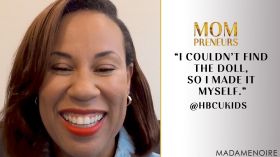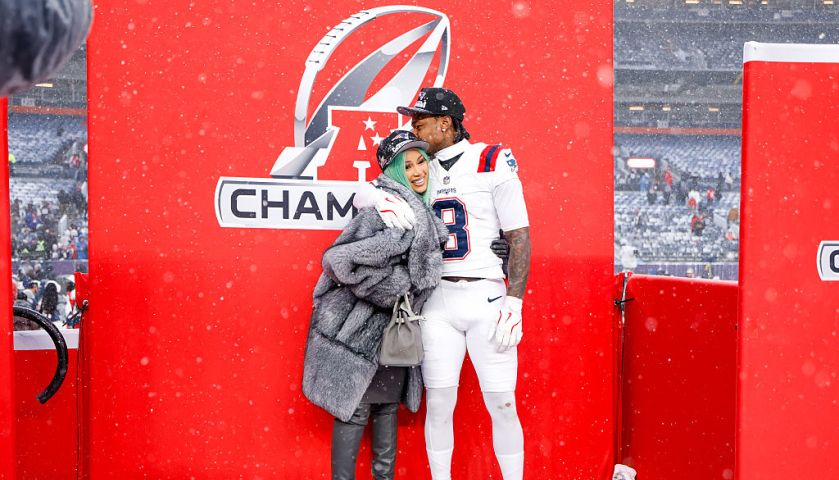Natalie Brown, Ally Director, On Empowering Future Leaders
Ally’s Director And Leader Of The Moguls In The Making Program Talks Navigating Corporate America And Empowering Future Leaders!
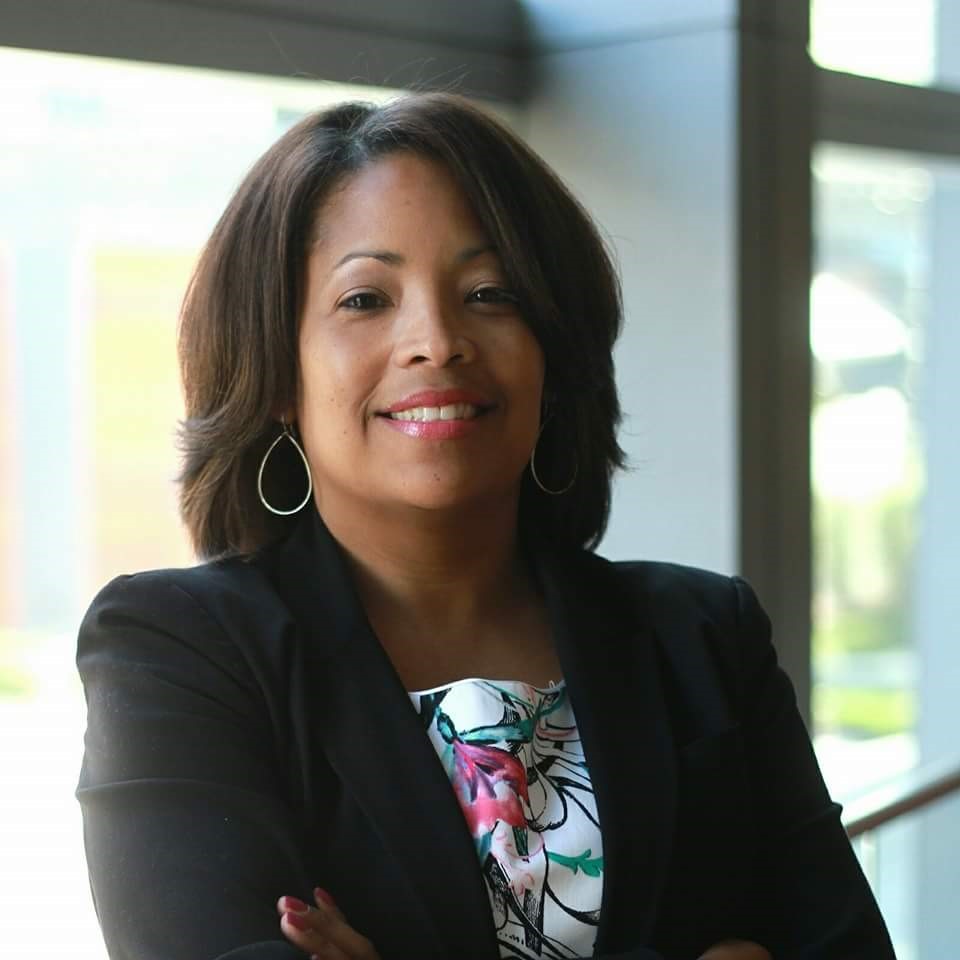
Source: courtesy Ally Financial / Ally Financial
Natalie Brown, Senior Director of Corporate Citizenship at Ally Financial, is shaping a legacy rooted in impact, servant leadership, and genuine connection. Raised by a single mother, Natalie understands the power of resilience and community, values she brings to her work at Ally. Through initiatives like Moguls in the Making, a program she leads that empowers HBCU students with business skills and resources, Natalie is fostering pathways to success for future generations. Her dedication to advancing financial education, and helping others realize their potential is not just a career—it’s her calling, shaping lives and opening doors that once seemed unreachable.
In this exclusive interview, Natalie not only discusses her 30 year career journey, she also touches on successfully navigating corporate America as a Black female executive, her role in co-creating Ally’s Moguls in the Making program, and how her own HBCU education prepared her for her career.
MadameNoire: Your career spans nearly 30 years. Your career at Ally began in supply chain procurement and now you’re an executive in philanthropy. Could you briefly walk us through your journey?
Natalie Brown: I actually began my career in a completely different field: automotive manufacturing. After graduating from North Carolina A&T State University (NC A&T), where I’m a proud HBCU alum, I started in transportation management. My initial dream was to become the Secretary of Transportation, but life took me down a different path. I spent around 10 years in supply chain management across various industries, from manufacturing to a large financial institution, before eventually joining Ally. Throughout my career, I’ve taken on roles in compliance, anti-money laundering, HR, and diversity recruitment strategies, each offering new insights and skills. I’ve realized my sweet spot lies in work that aligns with my core values—servant leadership, community engagement, and giving back. Coming to Ally six and a half years ago was an opportunity to lead our charitable giving, grants, sponsorships, and community programs, and I couldn’t have asked for a better fit. It’s been an incredible journey, especially spearheading a program like “Moguls In The Making.”
MadameNoire: You mentioned being an alum of NC A&T. How did your HBCU education prepare you for your career?
Attending an HBCU has absolutely been a cornerstone for me. Being in an environment where excellence was not only expected but cultivated by professors, administrators, and mentors throughout my collegiate career made a lasting impact. One lesson I always share with students is that attending an HBCU taught me to seek out unique opportunities and embrace situations that may be uncomfortable. My major—transportation—was particularly small, and when we went to conferences, we were often the only HBCU there. Our leadership consistently encouraged us to step into spaces where we might feel uncomfortable, but we had to learn to get comfortable being uncomfortable.
These experiences at an HBCU taught me intangible skills that have proven invaluable in my career. For instance, when I worked in Holland, Michigan, which was not very diverse at the time, I was often the only person of color and the youngest in my entire department. However, because I had been grounded at my HBCU, I was prepared to navigate those situations with confidence. I knew how to show up with excellence, leverage relationships, and navigate unique spaces—skills that have empowered me throughout my journey in corporate America.
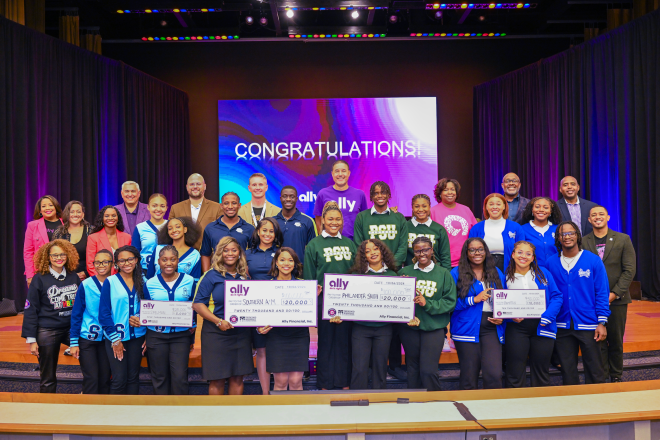
Source: courtesy Ally Financial / HBCU Students from various Black colleges show off their winning checks, Natalie Brown pictured top left in fucia blazer.
MadameNoire: Moguls In The Making clearly holds a special place in your heart. Can you share the program’s origins and why it’s meaningful to you and Ally?
This program started with a conversation between our chief marketing and PR officer and Big Sean, about how we could collaborate. That conversation evolved into Moguls In The Making (Moguls), a program designed to support HBCU students. Our first call was to the Thurgood Marshall College Fund, which has a dedicated division for innovation and entrepreneurship. We were one of their first companies, outside of their own programs, that they partnered with to help co-create Moguls together. Since the program’s start, we’ve supported over 300 students, provided more than a million dollars in scholarships, and given HBCU students a chance to showcase their talents. The impact on students’ economic mobility and career paths has been profound, making this work immensely rewarding.
MadameNoire: What do you hope HBCU students gain from the program, both professionally and personally?
Students who go through Moguls acquire valuable, transferrable skills like human-centered design and learning how to ideate, that’s critical thinking—skills that will serve them in any industry. For those interested in entrepreneurship, they learn to develop business models, which helps build strategic thinking. Financial education is also a huge focus; many HBCU students have significant student debt, so learning to manage finances early on is crucial. Whether they’re heading into corporate roles or starting their own ventures, they leave the program with tools for financial and professional success
MadameNoire: You want to create a “Moguls family” that stays connected. How do you maintain that ongoing support for Moguls alumni?
We’ve built an alumni network called Mogul Made, and so as students come out of Moguls, they become Mogul Made!. Last year, for the program’s fifth anniversary, we hosted over 100 alumni in Detroit, celebrated them, provided networking opportunities, and even featured a Moguls panel. Each year, we conduct surveys to track their progress—many have become full-time entrepreneurs, news anchors, or executives in finance, technology, and engineering. Some are in professional sports, while others are giving back by mentoring new Moguls. It’s inspiring to see them thrive, especially those who come back to work at Ally and contribute their talents.
We’re extremely proud that former Moguls helped us to create a middle school curriculum called Fintropolis, which is a Minecraft game, that has 4.6 million downloads, and it’s free. It’s on the educational version so families and kids across the world can play this game and learn financial education through this game that was developed by four Moguls that were in our first class of moguls in 2019.
MadameNoire: Congratulations on all of your success with Moguls In The Making. Shifting to your role as a Black executive, what are some unique challenges have you faced, and how have they shaped your leadership style?
Navigating corporate America is challenging, and agility is key. I’ve faced situations that taught me how to operate with excellence and build strong networks. I tell young professionals, including my daughters, to start with excellence, foster relationships, and view career growth as a checkerboard, not a ladder. Moving laterally can be as essential as moving up vertically. It’s a marathon, not a sprint, and developing transferable skills for future roles has been invaluable to my career progression.
MadameNoire: Representation in leadership is essential. It’s very important to see women like you in the executive ranks. How do you approach increasing diversity at Ally and beyond?
I think a lot of it has to do with understanding there’s a need; there’s always a need to continue to invest in diverse talent. Personally, mentoring diverse talent, both at Ally and beyond, is deeply important to me. I’ve had incredible mentors who have guided me, and I strive to pay that forward by sharing that there are indeed pathways to leadership within corporate America—but it all starts with performance and hard work. You have to be intentional, roll up your sleeves, understand your role thoroughly, and stay committed to learning as you move through this space.
Another crucial piece is connecting with other Black leaders and executives. We have a network where we regularly communicate, support each other’s growth, and mentor emerging talent. It’s common for us to refer individuals to one another—whether it’s, “Have you spoken to so-and-so?” or “Make time to connect with this person.” Building a robust network of the next generation of diverse leaders is important.
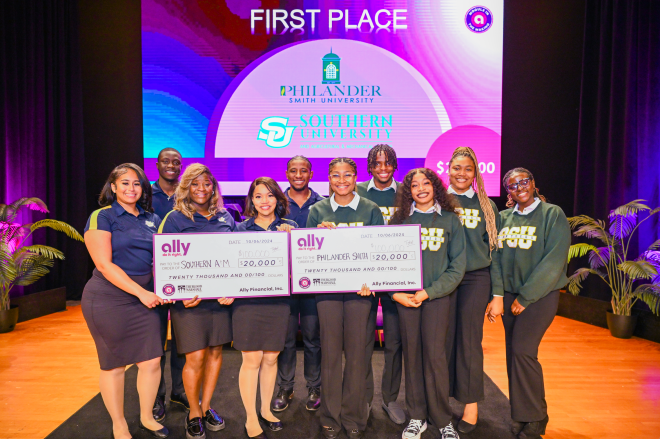
Source: courtesy Ally Financial / Two teams from Philander Smith University and Southern A&M took home the grand prize of $20K each, for a grand total of $200K.
MadameNoire: Financial education is one of your passions. What are the most pressing challenges you see in communities, and how does Ally address them?
It’s education. Financial education is, I think, one of the things that we recognize as one of those challenges, especially in underrepresented communities. Many of us in Black and Brown communities grow up in households where money isn’t typically discussed. Often, it’s either because we didn’t have it to talk about or because it simply wasn’t a topic our parents talked to us about. I was raised by a single mother, with a father in corporate America and a mother who worked for the city—both in solid, blue-collar professions. But even in our household, we didn’t discuss finances.
I think starting with the basics—understanding budgeting, what credit is, and why it matters—is essential for our community. Financial education provides that foundation. Once people have that baseline knowledge, they can start moving toward goals like homeownership and building generational wealth through investing and other financial strategies. I’m passionate about this because I believe our community deserves to start on the same level playing field and that begins with financial education.
MadameNoire: At what age should financial education begin? Kindergarten? High School?
The sooner, the better. They should start as early as you can get them to start. At Ally, we’ve developed a book called Adventures in Money for first graders, which teaches the basics of earning, saving, and giving. Our employees read it in classrooms and play games with students to reinforce these lessons. Starting these conversations early makes a significant difference.
Personally, I started early with discussing money with my own daughters, teaching them to save a portion of any money they receive. They don’t always do it, but I helped them recognize that a portion of their money needs to go into savings, because you never know when you’re going to need it.
MadameNoire: Having spent nearly your entire career navigating complex corporate landscapes, what advice do you have for those aspiring to leadership?
First, master your craft and understand the purpose of your role. Second, operate with excellence; do everything that you can to the highest of your ability. Third, build a strong network. These relationships—with mentors, peers, and colleagues in and outside your company —are invaluable. Those are three pieces of advice I would give any young professional aspiring to move up in their career.
MadameNoire: What legacy do you hope to leave at Ally?
The legacy I want to leave is centered on creating a lasting social impact. When I joined Ally, it was because their values aligned closely with mine. I want to help communities achieve their financial dreams, advance in economic mobility, and ultimately be able to live their best lives.
It’s about setting an example—not just for my own children but also for students from HBCUs—showing them what a fulfilling career can look like. I want them to understand they’re standing on the shoulders of those who came before them, just as I do. It’s important to me that they also embrace servant leadership by giving back and bringing others along with them.
All of these values are important to my career journey and are what I hope to keep doing until I decide that I can retire at some point.
MadameNoire: Reflecting on your journey, what lessons have been the most transformative for you, and how do you continue to grow, both professionally and personally?
One of the key lessons I hold onto came from a mentor who advised me to “leverage your power.” When I was first entering corporate philanthropy, my resume didn’t exactly reflect this field, apart from transferable skills. I hadn’t done this work before, but that advice pushed me to connect with the right people and ask the right questions. Through my network and by advocating for myself, I was able to secure a role in this area with a major financial institution.
Another important realization has been to find roles that align with who I am and where my strengths truly lie, because that’s where I can perform at my best. Once I identified my “sweet spots,” I knew these were the areas I wanted to focus on in my career. So, when I was looking for new opportunities, before coming to Ally, I was looking for opportunities within those lanes.
And so that was an “aha” moment for me, of saying, “Okay, let me find what I’m doing right. Let me find things that I care about, I’m passionate about,” and then realizing that once I found those sweet spots, I realized that was God’s purpose for my life. So, now, I’m making sure that I’m walking in that purpose, which is what I feel like I’m doing every day when I come to work at Ally.
RELATED CONTENT: 5 Mini-Moguls to Inspire Your Kids
